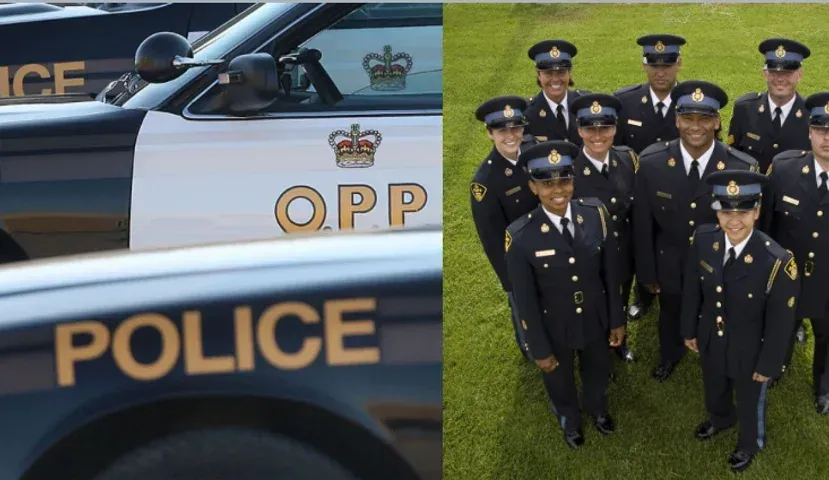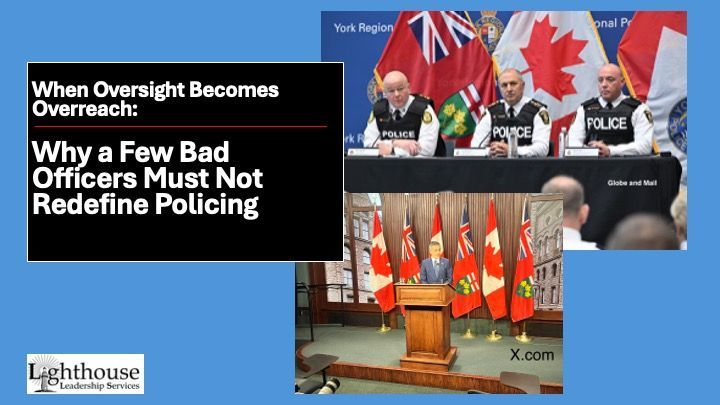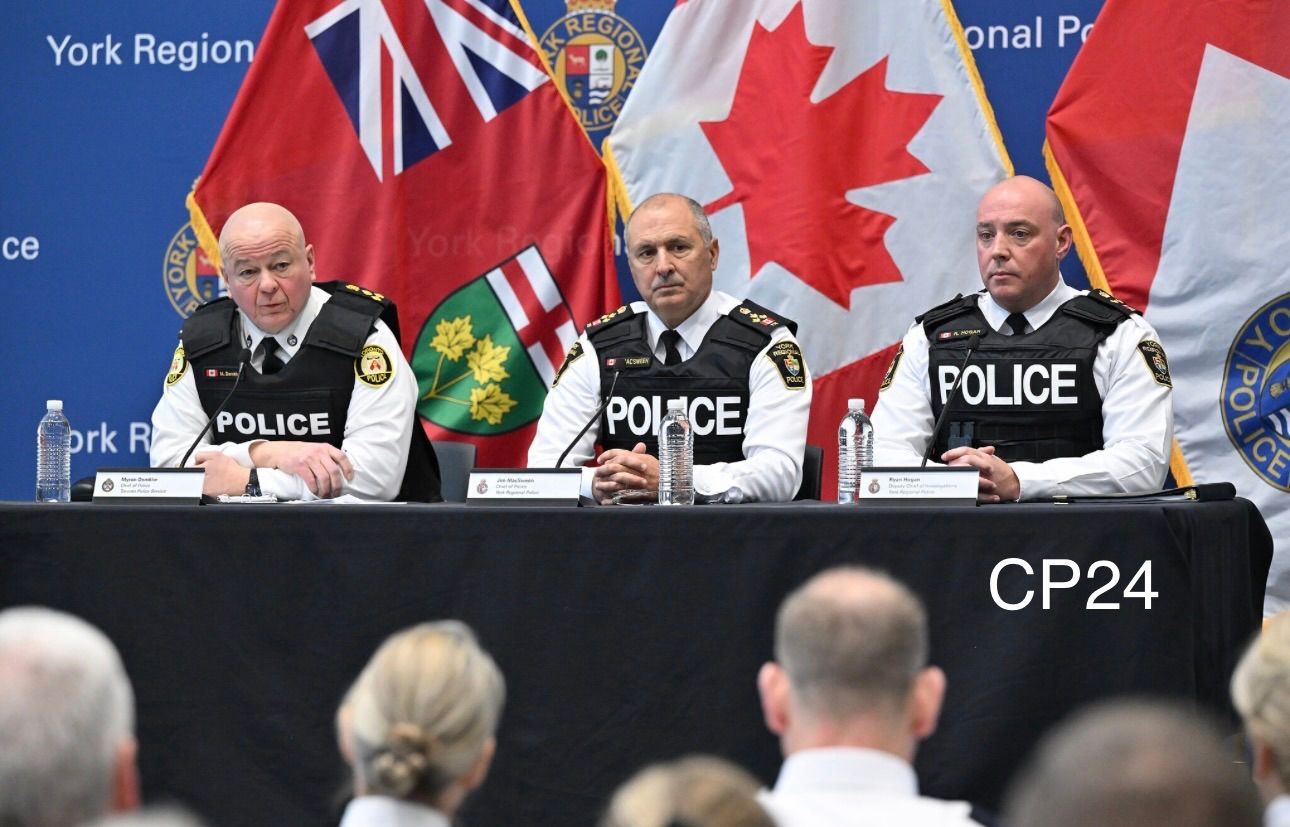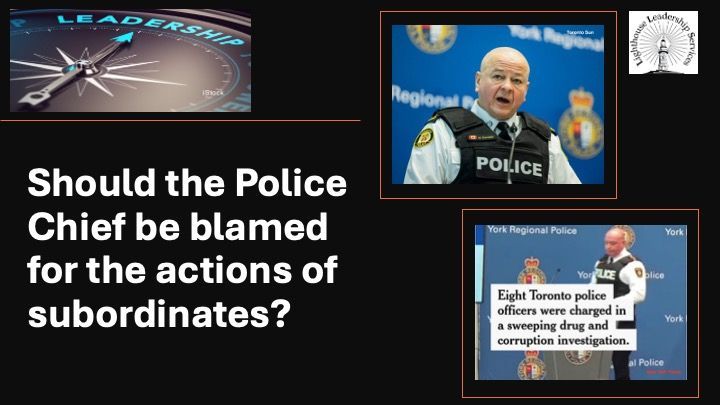New Paragraph

If the OPP can do things better it should. But it does care about its people.
The CBC Fifth Estate program “Officer Down” aired March 10th, was billed as being a “raw and honest insight into a culture at one of Canada’s biggest police forces that has led to a series of suicides by OPP officers”, but in my opinion it unfairly tarred an entire organization as being unsupportive and uncaring. Nothing could be further from the truth.
In these difficult times, I truly hope the majority of the OPPs wonderful men and women – the ones that know the OPP isn’t perfect but that still love the force and want it to succeed, stand up and defend the organization.
In these difficult times, I truly hope the majority of the OPPs wonderful men and women – the ones that know the OPP isn’t perfect but that still love the force and want it to succeed, stand up and defend the organization.
Is any police service immune to these issues? Has any service absolutely nailed the PTSD issue? Is there a police department in North American that can say they don’t lose more members from suicide than through line of duty deaths? Sadly, no. It’s an issue that we can never lose sight of. ALL police services need to do all they can to support their people and to prevent that from happening.
I was Commissioner when the Ombudsman came out with his report on PTSD that slammed the OPP as not caring about its people. His theatrical and negative portrayal of the OPP infuriated me, as did his mischaracterization of a number of issues. I had silently dealt with a number of personal issues myself, following many years of experiencing traumatic events, at a time when programs were substandard to non-existent. I did not want our people to endure that same emotional roller-coaster. I also knew that we were doing lots to support our people through singular and cumulative traumatic incidents, only to be awakened by his report to the fact that we were not doing enough.
When the dust settled, we implemented a significant project to do more and to serve our people better. The Deputies and I were totally committed to doing all we could to ensure effective and confidential programs were in place; that they were well-communicated; and to try to mitigate the stigma issues that still existed. It was the right thing to do. We subsequently were doing more at that point in time than any other police service in Canada in my opinion, and our report back to the Ombudsman demonstrated that. He actually complimented us on our progress. That work has continued in the five years since my departure. Then came three tragic suicides of members in 2018, leading to another examination of what is working, what isn’t and what else could be done to support OPP personnel. That work is ongoing. I know that Commissioner Hawkes was equally committed to that, as were the Interim Commissioners since.
If there are issues that need to be fixed and things that the OPP can do better, the executive owes it to their people to do just that. Then, the entire supervisory team and all OPP colleagues – whether uniformed or civilian and regardless of rank or position, also have a role to play in eliminating stigma issues. The biggest challenge still remains “stigma” and all the best programs in the world won’t help if members suffer in silence because they feel that to use the programs will make peers and supervisors think they are weak.
OPP Recruiting continues to be inundated with direct hire applicants from other services. Members talk between services. They know which services have what to offer, or not, and the OPP is most often viewed as a great police service that generally treats its members quite respectfully and like the adults and professionals that they are.
There’s a small group of members out there, some retired, that are determined to change that positive perception because of real or perceived unfairness to them. No bullying or harassment is ever right or acceptable. None. Perhaps some of these folks were truly treated poorly at some point, which is sad. And some of it happened on my watch, which I feel badly about. I thought many of the great programs we put into place in my tenure were working, only to find out that a number of members at various ranks didn’t buy in, didn’t support others and still treated some members unfairly. It’s hard to fight that as the leader. You often don’t know about failures until they become glaringly obvious and then it’s too late.
Someone is broken. But I was the boss and I have to accept ownership for any mistreatment that was inflicted. I apologize for that.
But perhaps “some” just don’t want to accept any personal responsibility for their own failings and want to blame everyone but themselves for the way their own careers went.
I’m confident that there are thousands of current and past OPP members that don’t agree with many of the allegations made, but we continue to hear from the vocal and negative minority while the majority remains mute.
Members should speak for themselves – good, bad or indifferent. They are not lemmings and shouldn’t simply follow some of these people as they try so hard to paint a great organization as uncaring. At the same time everyone should contribute their thoughts and suggestions on how to make things better for all. That’s what the dialogue should be about.




